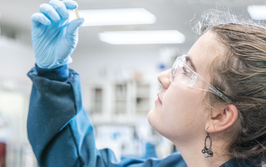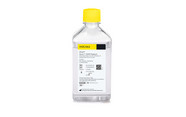Facing the Good Problems
The cell therapy industry faces a number of complex problems. Fortunately, they are good problems to have.
Last year was a real watershed for cell therapies: we saw the first CAR-T FDA approvals – Kymriah and Yescarta. The field has continued to develop in 2018, with Kymriah receiving FDA approval for a second indication last month (1). Gilead also announced in May that they have leased a 117,000 square-foot facility at the SEGRO Park Amsterdam Airport, the Netherlands, to build a new manufacturing facility for Yescarta (2). Both treatments are under regulatory review in the EU, with approvals hoped for later this year.
Just two years ago, the central issues facing cell therapy developers were scientific: efficacy and safety. Now, the cell therapy industry must tackle new problems, especially around logistics and pricing. Are the logistical challenges associated with cell therapies best met with centralized or decentralized manufacturing models? A centralized approach involves hospitals sending their cells to a single center for treatment, whereas a decentralized approach would have many centers, closer to hospitals.
During a workshop at last month’s annual ISCT conference in Montreal, Dennis-Claude Roy, CEO of CellCAN, explained that consistent quality is easier to achieve with a centralized approach and that the upfront costs are lower. Decentralized manufacturing, on the other hand, eliminates the need for cryopreservation and may allow patients to receive multiple rounds of treatment.
According to Oumeya Adjali from the University of Nantes, France has adopted a centralized approach (for now), whereas Canada is trying to combine centralized and on-site production. CellCAN (a not-for-profit organization funded by the Canadian government) allows Health Canada to interact with one organization, as opposed to the nine individual facilities in Canada – demonstrating how government funded initiatives can support the advanced therapy industry.
The final problem facing the cell therapy industry is, of affordability – and it could be that we see new pay-for benefit pricing and reimbursement models coming into play.
The success of the cell therapy industry will depend on solving these problems. But who could ask for a better set of problems than those boiling down to: “how can we get our lifesaving cancer cures to as many patients as possible?”

James Strachan
Deputy Editor
- Novartis, “Kymriah (tisagenlecleucel), first-in-class CAR-T therapy from Novartis, receives second FDA approval to treat appropriate r/r patients with large B-cell lymphoma”, (2018). Accessed 8 June, 2018. Available at: bit.ly/2I7aKLa.
- Business Wire, “Kite Announces New Worldwide Facilities and Expanded Collaboration with National Cancer Institute to Support Cell Therapy Pipeline”, (2018). Accessed 8 June, 2018. Available at: bit.ly/2wHZ78O.

Over the course of my Biomedical Sciences degree it dawned on me that my goal of becoming a scientist didn’t quite mesh with my lack of affinity for lab work. Thinking on my decision to pursue biology rather than English at age 15 – despite an aptitude for the latter – I realized that science writing was a way to combine what I loved with what I was good at.
From there I set out to gather as much freelancing experience as I could, spending 2 years developing scientific content for International Innovation, before completing an MSc in Science Communication. After gaining invaluable experience in supporting the communications efforts of CERN and IN-PART, I joined Texere – where I am focused on producing consistently engaging, cutting-edge and innovative content for our specialist audiences around the world.


















